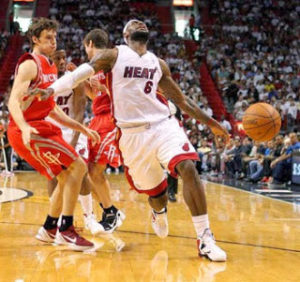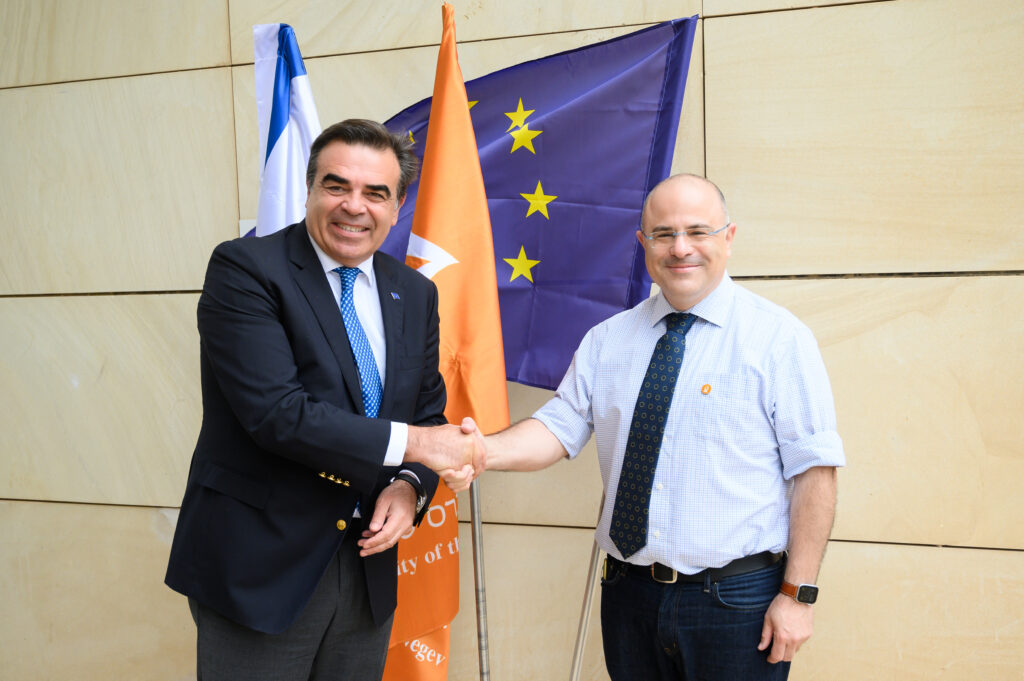
Are “Flops” a Success in Basketball?
Are “Flops” a Success in Basketball?
October 28, 2014
Business & Management, Press Releases
BEER-SHEVA, Israel, October 28, 2014 — A lack of sufficient punishment for deception facilitates “flopping” in basketball, according to new research from Ben-Gurion University of the Negev (BGU), which revealed that two-thirds of the falls were found to be intentional. Based on the research, the authors believe that players and teams are unaware of the cost/benefit analysis of “flopping” or the negative effect of falling if no offensive foul is awarded, which is indeed the case 90 percent of the time.
 In the study, published recently in the Journal of Economic Behavior and Organization, the researchers determined that game referees repeatedly failed to penalize flopping players, even in the most flagrant cases of deception. “In fact, no warnings or technical fouls were recorded during the whole season that was analyzed,” explains Elia Morgulev, Ph.D. candidate at BGU’s Guilford Glazer Faculty of Business and Management.
In the study, published recently in the Journal of Economic Behavior and Organization, the researchers determined that game referees repeatedly failed to penalize flopping players, even in the most flagrant cases of deception. “In fact, no warnings or technical fouls were recorded during the whole season that was analyzed,” explains Elia Morgulev, Ph.D. candidate at BGU’s Guilford Glazer Faculty of Business and Management.
Videotapes of actual decisions by referees in offensive foul situations from 501 plays during Israeli Super League games were shown to several professional basketball coaches and referees engaged as experts. “The experts could use slow motion and multiple viewings to make the call, so we compared their more accurate decisions to the game referee calls,” Morgulev explains.
Referees were found to have almost always ignored situations in which the defender stayed on his feet after the attacking player bumped him, with only three percent of the 251 “standing incidents” called fouls by the referee. On the other hand, the experts, with more time to review options, judged that 23.1 percent of these cases justified an offensive foul call.
“The defender improves his chances of drawing an offensive foul to some extent by falling intentionally vs. standing,” Morgulev explains. “However professional players and coaches should be expected to make a broader assessment of their decisions and refrain form myopic thinking that flops are the right course of action.”
With the 2014 NBA season starting, Morgulev believes that flopping should receive a more significant fine or punishment. Even without harsher penalties, from a team perspective, it might be still doing more harm than good.
“Overall, the player is barely able to mislead the official and draw the offensive foul with a flop successfully in less than 10 percent of the time,” Morgulev states. “So in the other 90 percent, the flopping player is simply left lying on the ground, leaving his team with four active defenders instead of five while the game goes on. Our methodical analyses of game outcomes in those cases reveal that flopping does more harm than good from the defending team perspective.”
ABOUT AMERICANS FOR BEN-GURION UNIVERSITY
By supporting a world-class academic institution that not only nurtures the Negev, but also shares its expertise locally and globally, Americans for Ben-Gurion University engages a community of Americans who are committed to improving the world. David Ben-Gurion envisioned that Israel’s future would be forged in the Negev. The cutting-edge research carried out at Ben-Gurion University drives that vision by sustaining a desert Silicon Valley, with the “Stanford of the Negev” at its center. The Americans for Ben-Gurion University movement supports a 21st century unifying vision for Israel by rallying around BGU’s remarkable work and role as an apolitical beacon of light in the Negev desert.
About Ben-Gurion University of the Negev
Ben-Gurion University of the Negev embraces the endless potential we have as individuals and as a commonality to adapt and to thrive in changing environments. Inspired by our location in the desert, we aim to discover, to create, and to develop solutions to dynamic challenges, to pose questions that have yet to be asked, and to push beyond the boundaries of the commonly accepted and possible.
We are proud to be a central force for inclusion, diversity and innovation in Israel, and we strive to extend the Negev’s potential and our entrepreneurial spirit throughout the world. For example, the multi-disciplinary School for Sustainability and Climate Change at BGU leverages over 50 years of expertise on living and thriving in the desert into scalable solutions for people everywhere.
BGU at a glance:
20,000 students | 800 senior faculty | 3 campuses | 6 faculties: humanities & social sciences, health sciences, engineering sciences, natural sciences, business & management, and desert research.
For all press inquiries, please contact:
James Fattal, J Cubed Communications
516.289.1496



